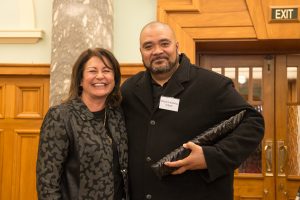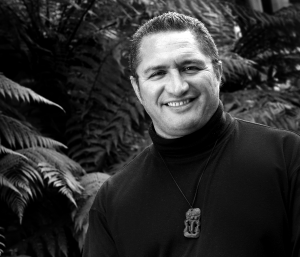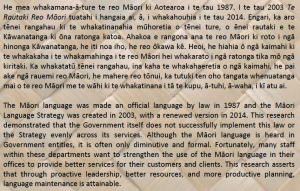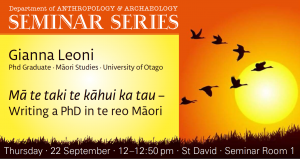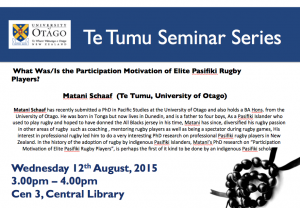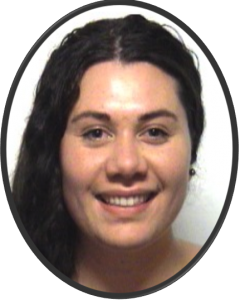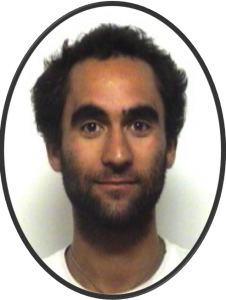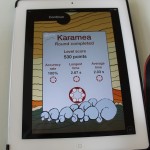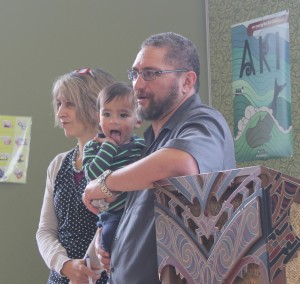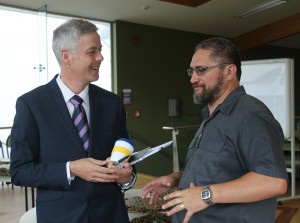Postgraduates Graduating
Te Tumu congratulates our postgraduate students who are graduating this December.
Doctor of Philosophy
Matani Fakatotua Schaaf
Supervisors: Dr. Paerau Warbrick, Prof. Michael Reilly (until 2012, Prof. Brendan Hokowhitu)
Title: Motivation and Burnout in Professional Pasifiki Rugby Players
This thesis examined the participation motivation among professional Pasifiki rugby players. Dominated by Western theories and models, rugby participation research has overlooked the inclusion of a theory or model that is significant to Pasifiki peoples. This research identified what cultural factors exist, that motivate so many Pasifiki peoples to play rugby. This research also highlighted a mismatch between the lived realities of Pasifiki rugby players’ experiences of motivation and burnout, compared to the lived realities of Palāngi rugby players. The most notable outcome, was that Pasifiki rugby players’ experiences were dramatically intensified, by familial, cultural, spiritual and financial obligations; which manifested in burnout, mental illness, substance abuse, binge drinking and failed attempts at suicide.
Master of Indigenous Studies
Te Tumu also has two Master of Indigenous Studies (MIndS) students graduating.
Nurul Sultan, supervised by Dr Lyn Carter, researched “The Relevance of Indigenous Knowledge in Contemporary Research Methodologies”.
Nikki Walden (Taranaki, Te Āti Awa), supervised by Assoc Prof. Merata Kawharu, undertook her MIndS research on “Āhurutanga: the practice and application of a customary Māori principle within a Māori tertiary context. Mā te whakaharatau e tika ai.”
He rongo
Aroha mai! A belated roundup of Te Tumu research news.
In July we were treated to Poia Rewi’s Inaugural Professorial Lecture, held to celebrate his ascension to this tūranga rangatira within the university. The title of his talk was “Hoka : Motivators of Time”, a tour alongside Poia as he recounted his own academic journey, and his ZePA model of developing positivity around the use of te reo Māori. This was well attended by Poia’s whānau, staff and students, as well as many from the community, and was capped off with haka, waiata and karakia. The lecture can now be viewed on ITunes U.
In July Te Tumu were privileged to host Professor Michael Harkin as a William Evans Fellow. Professor Harkin, a cultural anthropologist and inaugural editor of Ethnohistory, gave several talks: a public lecture “The Trump at the End of the World: Monsters and Marvels in our Parlous Age”, in which he brought his knowledge of societies past and present together, and a departmental seminar, “‘The Emotional Archive’: The case of Residential Schools in Canada”, in which he examined ‘the relative lack of negative narratives [he] elicited…during fieldwork in British Columbia in the 1980s–2000s’, while also exploring ‘various forms of social memory, proposing the notion of an “emotional archive” that contains non-narrative memory traces’.
It is always great when our students gain their postgraduate degrees, after months or years of working on, and writing up their research. We had three such students graduating this August: Sandra Spence (Pākehā) and Raaniera Te Whata (Ngāpuhi, Ngāti Porou, Te Whānau a Apanui, Airihi) with the Master of Indigenous Studies, and Gianna Leoni (Ngāti Kurī, Ngāti Takoto, Itariana) with a PhD.
Dr Lyn Carter supervised Sandra, whose research was on “Kāi Tahu Chinese Unions and Identity in Otago and Southland/Murihiku”; Associate Professor Merata Kāwharu supervised Rāniera (“Tautoro, tū te ao, tū te pō (The endurance of Tautoro heritage): Investigating challenges and opportunities”); Professor Poia Rewi and Associate Professor Lachy Paterson supervised Gianna (“Mā te Taki te Kāhui Ka Tau: Te Waiaro ki te Reo Māori i ngā Hinonga Kāwanatanga”) who wrote her thesis in te reo Māori. Gianna is teaching MAOR312: Te Māhuri 2 this semster.
He kauhau
Te Tumu’s newest PhD graduate will be presenting a seminar to the Department of Anthropology and Archaeology this Thursday, 12pm. Ko te kaupapa te tuhi i tāna tuhinga kairangi i roto i te reo Māori; on writing a thesis in Māori. Koia kei a koe, Gianna.
Graduating this week
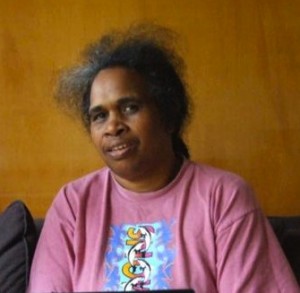 Congratulations to Lois Kusilifu (Solomon Islands) who is graduating this week with a Master of Indigenous Studies degree.
Congratulations to Lois Kusilifu (Solomon Islands) who is graduating this week with a Master of Indigenous Studies degree.
Title: The Experiences of the Solomon Islands Seasonal Workers under the Recognised Seasonal Employer scheme in New Zealand
Supervisor: Dr.Alumita Durutalo
Abstract: “Oketa chalens na osem, pipol lo dea oketa laef stael differen, espeseli na swea. Ani smol samting swea.Iumi wea garem kastom,kaen ia barava nogud lo iumi. Sapos iu no doim eniting gud oketa swea lo iu nao, so hem na osem mi faesim. Hem nogud tumas lo mi taem mi herem oketa usim nem blo God mi fil nogud tumas. Nara samting moa,mifala waka anda nit presa. Mifala bae no rest, taem,taem, everiting mas in taem. Osem gogo mifala big woman gogo osem smol pikinini tu becos mifala waka anda presa. Ma samting mi saenem na ia. Osem sapos oketa lelebet meanim wei blo iumi bae gud(9WW).”
(The challenges I have come across is that the lifestyle is different. Especially the way swearing and blasphemy are a common everyday speech. Not only that, we work under pressure. We don’t rest for long. We are expected to do things on time. This makes us feel as if we are kids. If only they understood us)
This study focuses on e focus the experiences of the Solomon Islands seasonal migrant workers in New Zealand’s Recognised Seasonal Employer (RSE) scheme. This scheme enables low-skilled seasonal migrant workers, to work temporarily in New Zealand’s horticulture and viticulture industries for a period of three to seven months each year. Interviews were conducted in two different locations- Wairarapa, New Zealand and Honiara- Solomon Islands. Qualitative research methods were used in gathering primary and secondary information. The findings of the research suggest that Solomon Islanders have benefited from participating in the scheme in ways they expressed as in building of permanent homes, advanced payment of school fees and undertaking of small businesses.
This study focused on extending the boundaries of earlier research, such as that done on Ni-Vanuatu seasonal workers in New Zealand, by having an in-depth focus on the social experiences of the Solomon Islands seasonal workers in New Zealand. What were the social experiences of the Solomon Islands seasonal workers and what could be done to improve employer and employee relations through policies to enable the benefit of all, the employers, employees and the countries involved.
Te Tumu postgraduate success
Featuring Malia Lameta & Te Ao Marama Tawhara. Six Te Tumu Masters-level students are graduating next week, with either Master of Arts, or Master of Indigenous Studies, showcasing our research strengths in the fields of Māori Studies, Pacific Island Studies, and Indigenous Development. Two are featured in today’s blog post, with more profiles forthcoming.
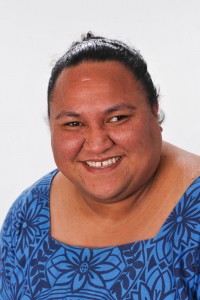 Malia Ellen Mamele Lameta (Samoan)
Malia Ellen Mamele Lameta (Samoan)
MA (Pacific Island Studies) supervised by Professor Michael Reilly and Dr Michelle Schaaf.
“I Am The Apple Of My Brother’s Eye” : An investigation into the evolving roles of Samoan women with particular reference to religion and gender relations.
[Click here to access the thesis]
Abstract: What does it mean to be a Samoan woman? The following thesis addresses this question by exploring the lived experiences of Samoan women with particular reference to religion and gender relations. Adopting an inter-disciplinary approach, it sheds light on the tenacity of socio-cultural and political factors that influence women’s roles and status. In particular, this research explores how Samoan women navigate the differing and often contradicting worlds of culture, Christianity, family, education, politics and gender. Information for this research was obtained through a series of interviews and literature analysis of primary and secondary sources. It has been the aim of this thesis to prove, not only to myself, but to those with a background and understanding similar to my own, that we, as women, are not inferior within Samoan culture. The participants’ words have been integrated throughout this thesis from Chapter One so as to emphasise and give strength to the voice of Samoan women. This thesis is centred on the inspiration and aspiration of these women and as a result, their testimonies have been brought alongside the literature as opposed to being supplementary. Women’s roles as sisters, wives and daughters are explored and the question is posed whether their cultural importance and status has been diminished by the influence of Christianity. From the evolution of women’s roles, to the changing meanings of the feagaiga, from the arrival of Christianity to the present day, women within Samoan society play a role that is imperative to the proper function of families, villages, districts and nation. The arrival of Christianity has not stripped us of our traditional importance but has increased and expanded our roles. We, Samoan women, are not oppressed, we are not suppressed; we have a voice, a place and dreams.
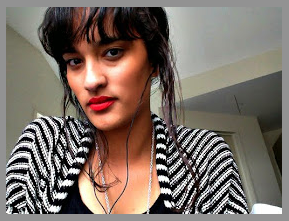 Te Ao Mārama Anna Maria Tawhara (Ngāi Tūhoe/German)
Te Ao Mārama Anna Maria Tawhara (Ngāi Tūhoe/German)
MA (Māori Studies) supervised by Dr Matiu Rātima & Associate Professor Poia Rewi.
Kia Māori te reo Māori? An investigation of adult learner attitudes towards the impact of English on te reo Māori
Abstract: This study sought to answer the following questions: What impact does the English language have on te reo Māori (the Māori language)? What attitudes do adult language learners have towards the impact of English on te reo? And what implications do these attitudes have for the revitalisation of te reo Māori? Engaging in in-depth semi-structured interviews with eight former University of Otago Māori language students from Te Tumu School of Māori, Pacific and Indigenous studies[1] (Te Tumu) forms a necessary part of this research project. Following Braun and Clarke (2008), the data gathered from the interviews was examined using Thematic Data Analysis.
The fundamental aim of this thesis is to explore and describe adult learner attitudes towards the impact of English on te reo Māori, so as to gain insight into how active language learners within Te Tumu perceive the influence of the English language. The thesis has two key foci, the first is parts of language, such as transliteration, code switching, pronunciation, grammar and idiom. The second is the impact of English within the context of teaching and learning.
On the one hand, this study shows that the participants view the impact of English as a form of contamination that is having a negative effect on Māori cultural concepts because there is less use of authentic Māori words and phrases, which in turn dilutes and minimises the representation and understanding of a Māori epistemological world view. On the other hand, some participants identified specific times when English language usage could be helpful to their developing proficiency in te reo Māori. The findings yield that there are certain exceptions such as the use of transliterations and code switching as being a necessary tool for scaffolding learning of te reo Māori particularly during the early stages of learning. The use of transliteration as a form of humour was also seen as acceptable. However, the main concern among the cohort was the maintenance of the authentic use of te reo Māori, more specifically, Māori lexicon, grammar, pronunciation, and idiom. Furthermore, the participants felt strongly about certain aspects of teaching and learning within Te Tumu that privilege Pākehā teaching methods[2] such as the grammar translation method and a lack of attention to tikanga Māori (Māori culture) and Māori centred pedagogies. The findings from this study show definitively that the participants feel that the language is in a state of contamination, on the other hand they are also concerned that there are times where transliteration and code switching can be necessary, even useful.
[1] See http://www.otago.ac.nz/tetumu/ for further information about the University of Otago department of Māori, Pacific and Indigenous studies.
[2] By Pākehā methods of teaching I am referring to the pedagogical teaching practices that favour the use of the English language.
Matani Schaaf Seminar
Matani Schaaf, who has just submitted his PhD thesis, will be presenting the next Te Tumu seminar on “What Was/Is the Participation Motivation of Elite Pasifiki Rugby Players?”
This will be held in CEN3, (Central Library) at 3pm, Wednesday 12 August. All interested people are welcome. Click on the image below for more details.
Better than Australians?
Nathan Albury suggests that Pākehā have embraced the Māori language better than white Australians have supported their indigenous languages. In an opinion piece for SBS Nathan makes this claims.
But the Australians have done so little to protect their languages, it’s not hard being better than them in this regard. And te reo Māori still needs everyone’s support. Me āwhi tonu te reo Māori, me tautoko, me kōrero.
Nathan is at Oslo University, but is supervised by Te Tumu’s Lyn Carter.
Attitudes of NZ youth to Māori-language revitalization
What do young people think about the future of te reo Māori?
Nathan Albury is undertaking research on “folk linguistics”, that is, what do ordinary people think about language use. Nathan was formerly here at Te Tumu, but is now close to completing his PhD at the University of Oslo on folk linguistics relating to the revitalization of te reo Māori in New Zealand, and the Saami language in Norway. Te Tumu’s Dr Lyn Carter remains as one of his supervisors.
Nathan has recently written a short pamphlet with some of his findings relating to te reo Māori. He has circulated it to government departments and political parties. In particular he has had a good response from Education Minister Hon. Hekia Parata, and from the Green Party. Click on the link to read Nathan’s pamphlet.Tō Tātou Reo
Te Tumu launches “Aki”.
Te Tumu has launched “Aki”, a new I-Phone game for learning Māori-language vocabulary. The game can also be played on I-Pads.
This project was headed by Associate Professor Poia Rewi of Te Tumu and Dr Katharina Ruckstuhl from Research and Enterprise. The game is informed by research by Te Tumu postgraduate students Nikita Hall and Kelly-Ann Tahitahi. Technical input from Design for Technology staff and students. Te Tumu students also assisted with the voices for the app. Learners will be able to increase their vocabulary (principally items and activities related to the home) while also competing with their friends. An Android version is currently being created.
Kua whakamānutia e Te Tumu he kēmu Ī-Waea (ko “Aki te ingoa) hei ako i ngā kupu reo Māori. E pai ana hoki te pūmanawa tautono (app) mō te Ī-papa. Ko Associate Professor Poia Rewi (nō Te Tumu) rāua ko Dr Katharina Ruckstuhl (Research and Enterprise) ngā kaihautu. Nā ētahi ākonga paerunga, nā Nikita Hall rāua ko Kelly-Ann Tahitahi te rangahau mō te kēmu nei. I whakatutukitia te taha hanga kēmu e ngā kaiako me ngā ākonga o Te Toki a Rata (Design for Technology), ā, nō ētahi o ngā ākonga o Te Tumu ngā reo e rangona ana. Ka taea e ngā tāngata e ako ana i te reo te whakarahi tō rātou mōhio ki ngā kupu reo Māori (e pā ana ki ngā taputapu me ngā mahi o te kāinga), ā, ka whakataetae rātou ko ō rātou hoa. Kei te hangaia he tūmomo Android ināianei.
Story from the Otago Daily Times.
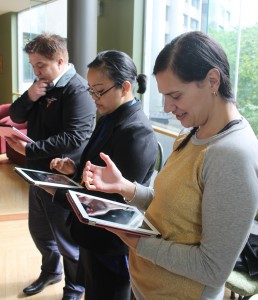
Gareth Seymour (nō Te Taura Whiri i te Reo Māori) rātou ko Migoto Eria (nō Te Whare Taoka o Ōtākou) ko Dr Karyn Paringatai (nō Te Tumu) e purei ana i te kēmu.

